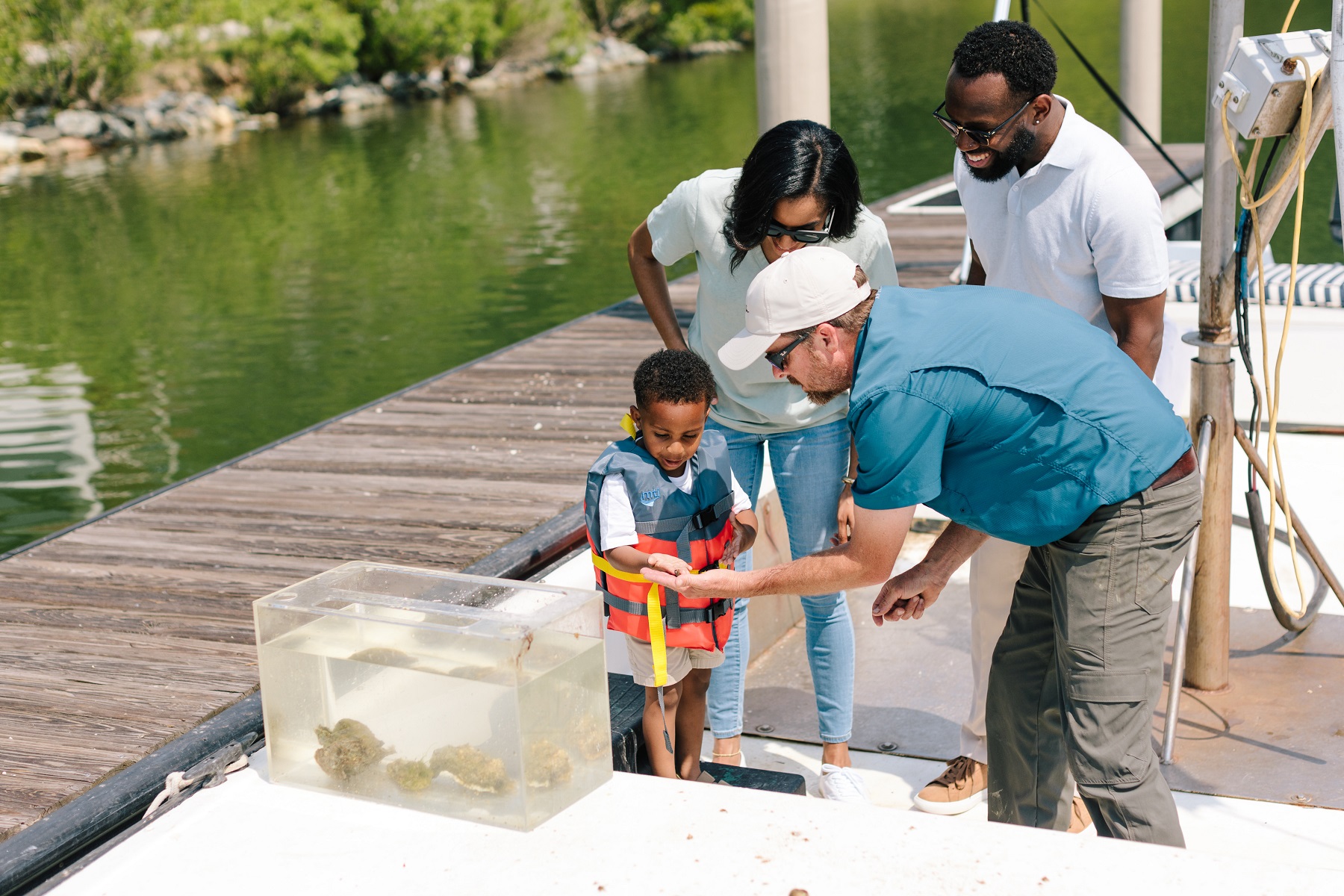From Classroom to Coastal Steward: The Ecological Journey of William Smiley
January 30, 2024

As a junior in high school in Lynchburg, Virginia, William Smiley, ecologist at the Tides Inn, went on a field trip with the Chesapeake Bay Foundation that sparked a lifelong career in science. Years later, after majoring in biology at Washington College and obtaining a master’s degree in Educating for Sustainability from Antioch University, Smiley was hired to teach science at Christchurch School located along the Rappahannock River. There, he launched an aquaculture initiative called Cans for Oysters utilizing funds from recycled aluminum cans to purchase oyster seed. “Students were running a seafood business out of the school waterfront,” says Smiley.
Four years ago, Smiley left his teaching job in hopes of working at a university, but his path changed course during the pandemic. He ultimately landed a dock position at Rappahannock Oyster Company where he serendipitously met one of The Tides Inn’s co-owners on a facility tour. At the Tides Inn, the busy father of three leads two experiences from mid-March to November named after two tomes penned by late local biologist William W. Warner: Chesapeake Gold and Beautiful Swimmers. “Chesapeake Gold covers the history of oysters in the bay, ecology of oysters, oyster reproduction, oyster restoration, and modern oyster aquaculture,” William says. “It’s a hands-on experience where guests get to be involved in our restoration efforts and experience how oysters are presently being farmed. At the end, they enjoy an oyster roast on the dock. Beautiful Swimmers is named for the Blue Crab [species name is Callinectes Sapidus which means ‘beautiful swimmer.’] Guests go out on the water and pull crab pots and then return to the dock where I steam the crabs and teach how to choose them in a traditional matter.”
In the winter, William leads an oyster-shucking tutorial covering the basics of oysters and the art of how to prep and open them. He’s also busy working on the future Woodland Trails revitalization plan for guest hiking and biking access, and an oyster restoration project, Spat On Shell, with partner organization, Friends of the Rappahannock. “As an ecologist I get to do work that makes the planet healthier,” he says. “It is very rewarding work. Clean water is the greatest gift to give. I also hope to build stewardship in the people I interact with. Maybe they will go back to where they live and take action. My thought is: don’t think about the whole world, just make your world the world and make it beautiful and abundant.”
